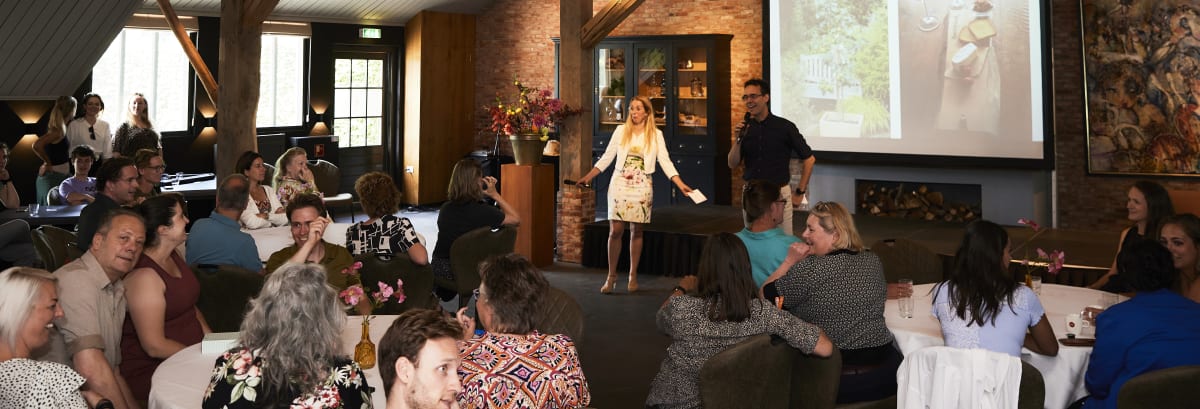On the road with IZA: risks and results in the region
Published on: 13-10-2022
If your dissertation is called ‘Yearning for Integrality’, it goes without saying that you must begin by looking positively at an Integrated Care Agreement, (in Dutch: Integraal Zorgakkoord (IZA), from the outset. The fact that there is an agreement that does not focus on one sector but attempts to tackle care-related, or better yet, social issues, is a breakthrough in itself!
The realisation that solutions to (apparent) healthcare issues also lie outside the healthcare sector is finally growing. The direction in which we need to go is clear. Main questions are going to be: how do we get there? And will, and do, parties really take responsibility in the interest of the bigger picture?
Collaboration
While there is nothing wrong with healthy competition to bring forth the best performance, something as important as support and care for the most vulnerable citizens requires a high level of collaboration.
The landscape is now fragmented and we need to keep moving. IZA is therefore fully committed to working together, Board approved. It even says: ‘it is more important now than ever’. And that is definitely a valid statement. How to shape it remains open. This is something all agreements must take into account, but there is also a risk.
Nothing is as tricky as effective cooperation and synergy between networks or alliances (or whatever relationship structure you choose). This is because it requires several attempts to get the pieces of the puzzle correct when it comes to organising the cooperation (‘the structure’), decision-making, the chosen scale, underlying values and relationships. The regional province has been elevated to the status of the ‘scale of the future’, and that brings risk. Developing region-wide scenarios and plans still works, but what comes afterwards?
Recentralisation
In the Netherlands, we learned that decentralising to municipalities was not the best choice. So there is something to be said for recentralisation to the provinces. However, regionalisation is often a socio-political choice, where for effective cooperation and network synergy, other principles should also play a leading role. In Finland, where I was recently for a presentation together with Jessica Michgelsen, they untied the knot (after many years and a fallen government); from about 200 organisations spread over municipalities to 22 ‘well-being counties’. Deliberately not the five ‘UMC’ (University Medical Centre) provinces because it would give the hospitals too much power and they’re too far removed from the public. Interestingly, in this new arrangement of care and welfare, democratic principles are embedded in regional governance. An elected regional council with a board and chairs, which oversees and interacts with a ‘regional director’ who liaises with healthcare providers. Exciting how that will play out from January ’23!
Regional
The concept is not crazy if you look at the existing knowledge on effective cooperation that takes into account building relationships with civil society. There, too, we still have a big challenge in the Netherlands. The public debate about what care is, but even more about what it should (or could) be in the future, will be more intense. Precisely at a time when there is a lot of dissatisfaction in our society. Also, in Finland, as in the Netherlands, there is a great risk that a lot of regional executive meetings (IZA: ‘parties have an executive IZA quarterly meeting’) will not really be driven by the needs of the citizen/client. Will the public benefit in the end? In Finland, the knot has been untied regarding how areas are divided, whereas in our country there are still many different types of regional divisions. But alignment of services and interaction with loved ones must ultimately take place locally. Governance (leadership, steering, supervision, accountability) must ultimately create enablers for that. You can set up consultations along ‘regional lines’, but not all care and services need to be organised at a regional level. Now that the IZA has been signed by (unfortunately not all) parties, it will be necessary to really put our heads together.
Integrality
At the time of my dissertation, the word ‘integrality’ was still not in the dictionary. So now with IZA, we are moving from ‘yearning’ to ‘working intelligently and wisely towards integrality’.
We will explore our Finnish insights further. Since, however unique the Netherlands and an IZA may seem, there will be both risks and results for the region. The yearning for it is international and not unique.







